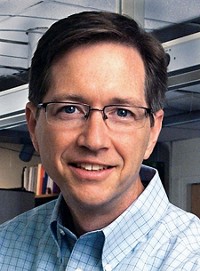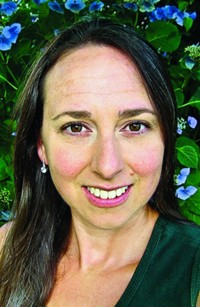Advertisement
Grab your lab coat. Let's get started
Welcome!
Welcome!
Create an account below to get 6 C&EN articles per month, receive newsletters and more - all free.
It seems this is your first time logging in online. Please enter the following information to continue.
As an ACS member you automatically get access to this site. All we need is few more details to create your reading experience.
Not you? Sign in with a different account.
Not you? Sign in with a different account.
ERROR 1
ERROR 1
ERROR 2
ERROR 2
ERROR 2
ERROR 2
ERROR 2
Password and Confirm password must match.
If you have an ACS member number, please enter it here so we can link this account to your membership. (optional)
ERROR 2
ACS values your privacy. By submitting your information, you are gaining access to C&EN and subscribing to our weekly newsletter. We use the information you provide to make your reading experience better, and we will never sell your data to third party members.
Environment
ACS Award in Chromatography
January 1, 2007
| A version of this story appeared in
Volume 85, Issue 1
Sponsored by Supelco
When J. Michael Ramsey first envisioned lab-on-a-chip technology in 1987 when he was a group leader at Oak Ridge National Laboratory, the idea received a resounding lack of encouragement.
"Everyone I tried the idea on laughed at it," Ramsey says. "They said either it wouldn't work or that it had no value."
Almost 20 years later, Ramsey, 54, now a professor of chemistry at the University of North Carolina, Chapel Hill, has been more than vindicated. Microfluidics technology that does multiple miniature reactions, separations, and assays is addressing myriad research problems, from speeding up the analysis of DNA in forensic investigations and genomics studies to searching for the origins of life on other planets. Ramsey has won countless honors for his innovation.
Lab-on-a-chip technology borrows ideas from the microelectronics industry. But instead of building miniature electrical circuits that move charges around, the lab-on-a-chip platform consists of miniature plumbing circuits on plastic, silicon, or glass chips that are used to transport and mix chemicals.
"Not too long ago, the use of microchips as tools in separation science was considered to be esoteric, futuristic, and remote. More than anyone else, Mike Ramsey has changed that perception," says Milos V. Novotny, a professor of chemistry at Indiana University, Bloomington. "His lack of fear in tackling technically difficult scientific problems has always been admirable."
In fact, Ramsey had no research background in chromatography when he set out to miniaturize chemical separations. Born in the northern Ohio town of Bellville, Ramsey received a B.S. in chemistry from Bowling Green State University in 1974 and then pursued a doctorate in laser-based chemical measurements under Gary M. Hieftje at Indiana University. He joined Oak Ridge National Laboratory in 1979 and stayed there for over 20 years before moving to UNC in 2004.
In 1984, Ramsey's ideas spawned a company now called Caliper Life Sciences, which trades on the NASDAQ. Ramsey says the biggest challenges to developing lab-on-a-chip technology were maintaining perseverance among dissenters and getting start-up funding. Developing tricks to navigate sticky surface chemistry is also a technical hurdle. As dimensions of micropipes are decreased, surface-to-volume ratios rise, and "you have to worry about molecules sticking to surfaces," Ramsey says. "It's an ever-growing challenge as we move into the nanofluidics realm."
"Dr. Ramsey's work is characterized by his great creativity and originality, the elegance and economy of his experimental design, and his obvious care and thoroughness in obtaining and analyzing data," says James W. Jorgenson, a chemistry professor at the University of North Carolina, Chapel Hill.
Next up, Ramsey is attempting to develop lab-on-a-chip technology that can sequence an entire genome from a single strand of DNA, part of a National Institutes of Health program to reduce the cost of sequencing an entire human genome from approximately $10 million to less than $1,000. Ramsey is also involved in developing bedside cancer diagnostics that would sidestep tests that require 10 mL of blood and a two-week-long wait, in favor of finger pinpricks and a 30-minute pause.
The award address will be presented before the Division of Analytical Chemistry.—Sarah Everts





Join the conversation
Contact the reporter
Submit a Letter to the Editor for publication
Engage with us on Twitter